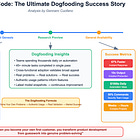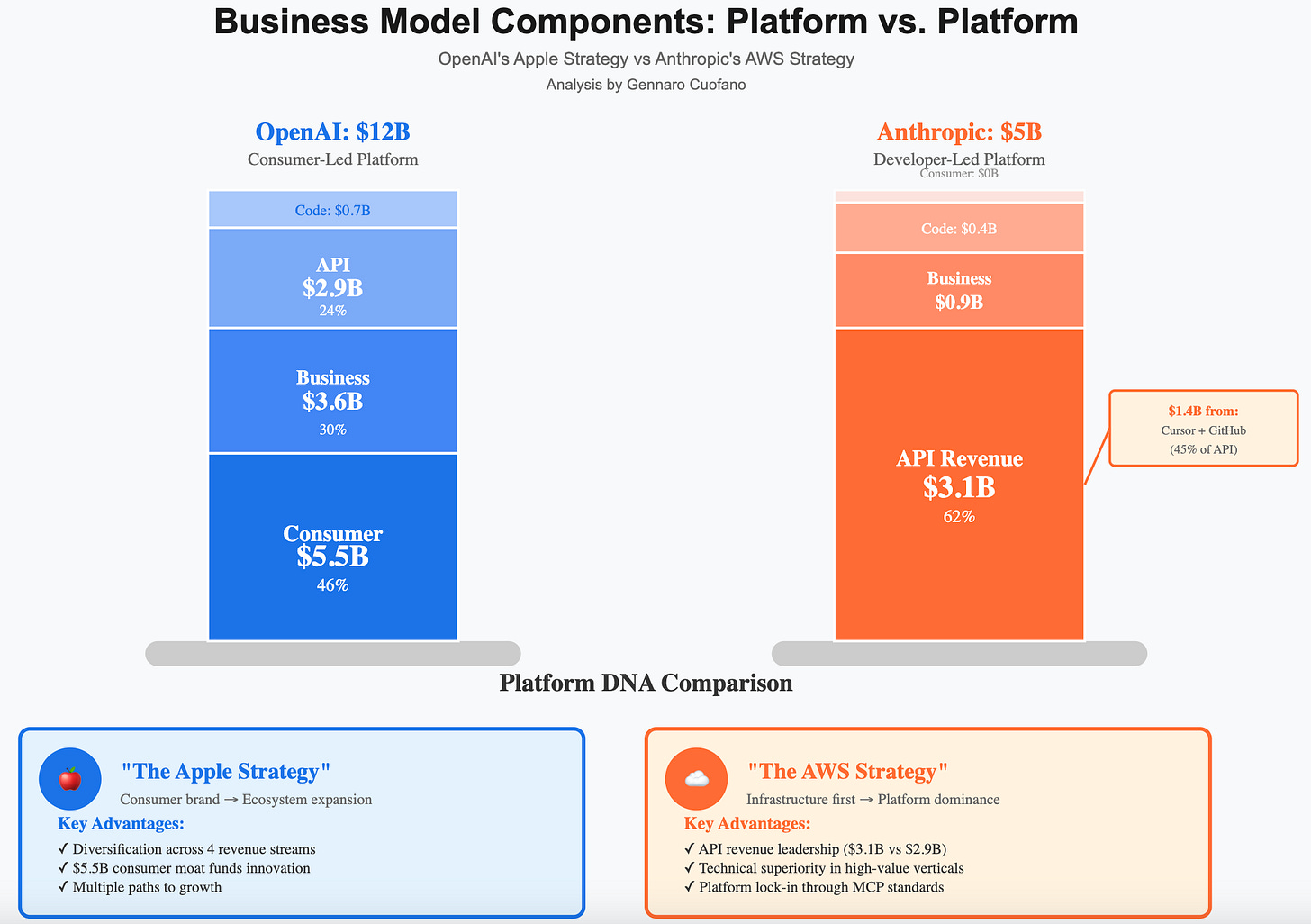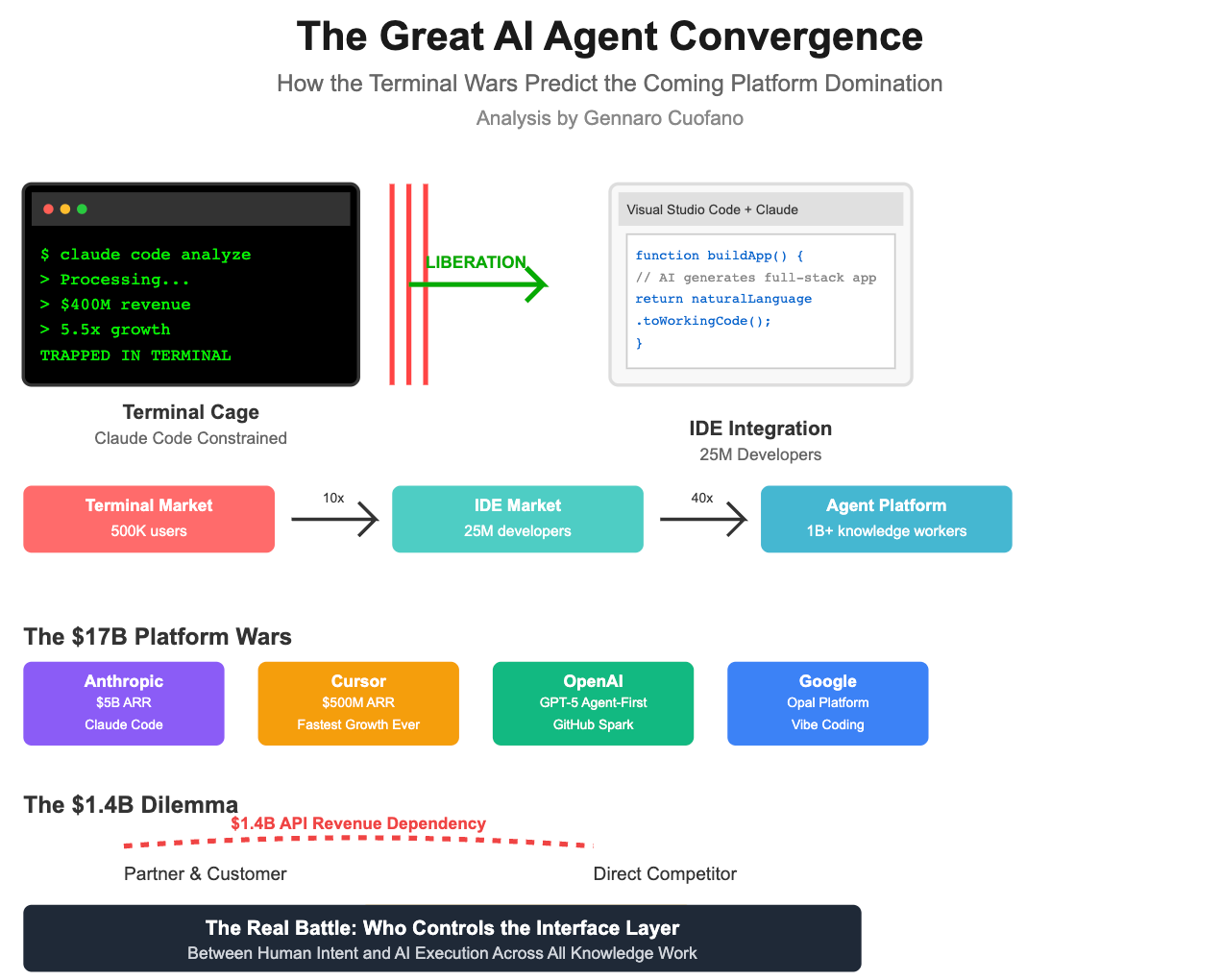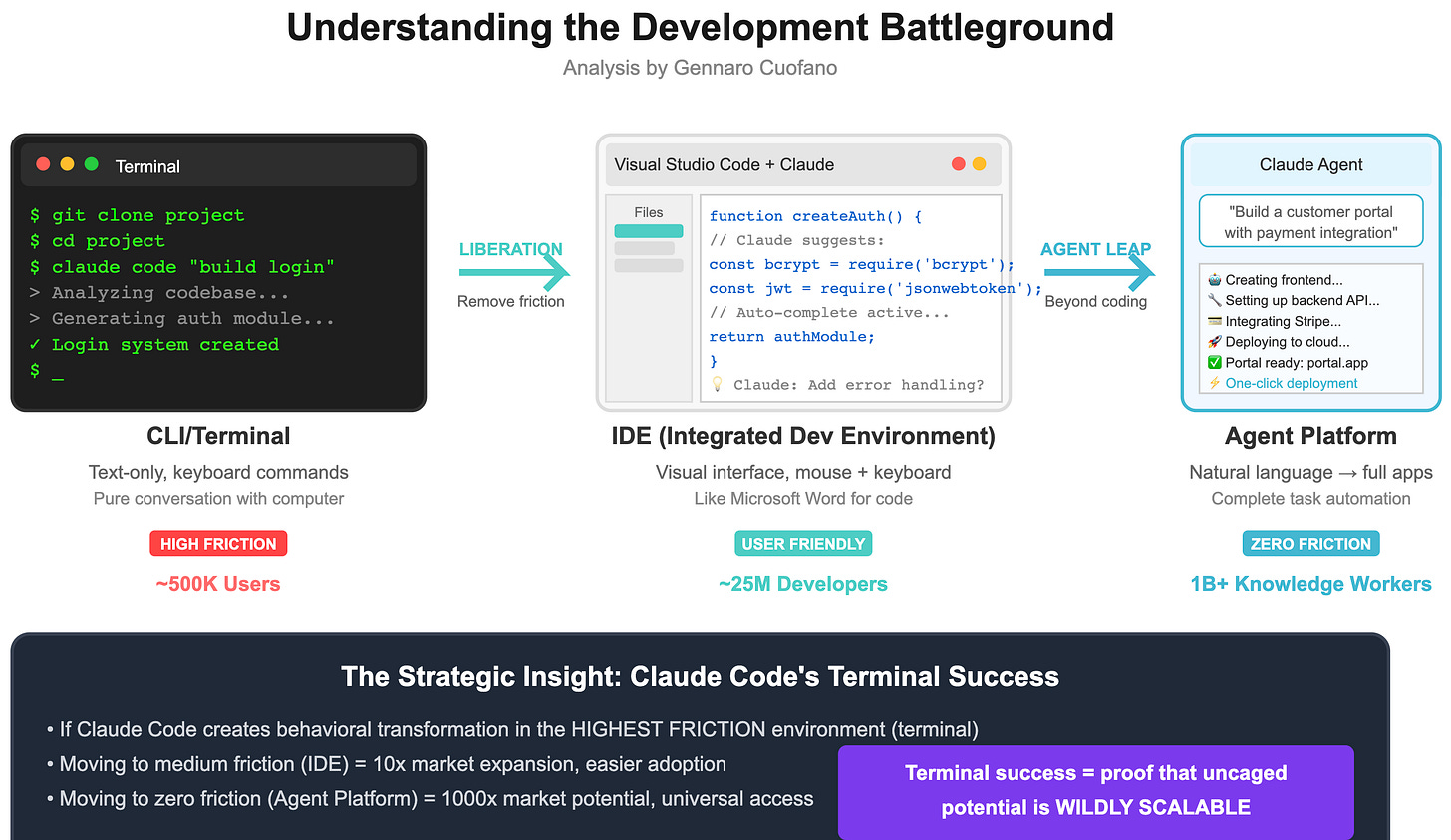Claude Agent Is Coming To Eat The Agentic Web
Claude Code is probably the only comparable tool, in terms of success, to ChatGPT.
Yet, while ChatGPT opened up the Generative AI race, Claude Code, to me, it’s opening up the Agentic AI race.
Indeed, Claude Code is right now “trapped in your terminal,” and yet, from a business perspective, it’s ready to get unleashed and turn into something else: Claude Agent!
This transition will mark the most critical moment for the AI industry in the last three years, and it might shape the market for the coming 3-5 years.
The numbers that emerged in late 2025 painted a picture that few had anticipated: Anthropic hit $5B in annual recurring revenue (ARR) in July 2025, up from $1B at the end of 2024, while simultaneously facing an existential strategic dilemma.
$1.4 billion of Anthropic's API revenue comes from just two clients: Cursor and GitHub Copilot - meaning nearly 30% of their entire business depends on companies they're now directly competing against.
Meanwhile, Cursor has surpassed $500 million in ARR, sources told Bloomberg, a 60% increase from the $300 million reported in mid-April, making it "the fastest growing startup ever," according to investors.
OpenAI's launch of GPT-5 as an agent-first model, combined with their aggressive moves into "vibe coding" through partnerships, has intensified what's becoming the defining battle of the AI era.
But here's what the revenue numbers obscure: the real war isn't about coding tools at all.
It's about who will control the interface layer between human intent and AI execution across all knowledge work.
This is what I call “The Great AI Agent Convergence.”
The Terminal Success: A $400 Million Validation Signal
Claude Code's journey from terminal-trapped tool to platform with revenue growth of "five and a half times" since May 2025 represents more than product success - it's proof that AI agents can create behavioral transformation even under maximum constraints.






